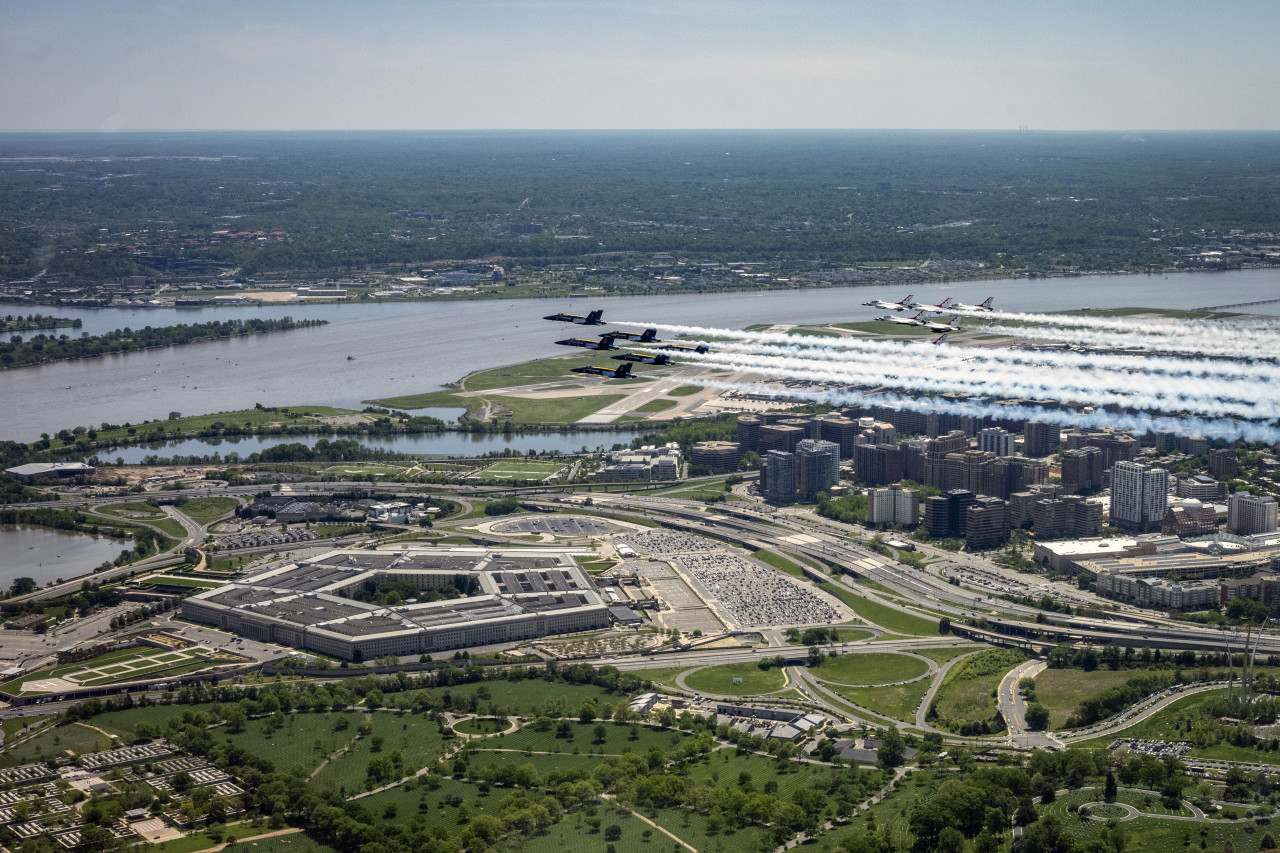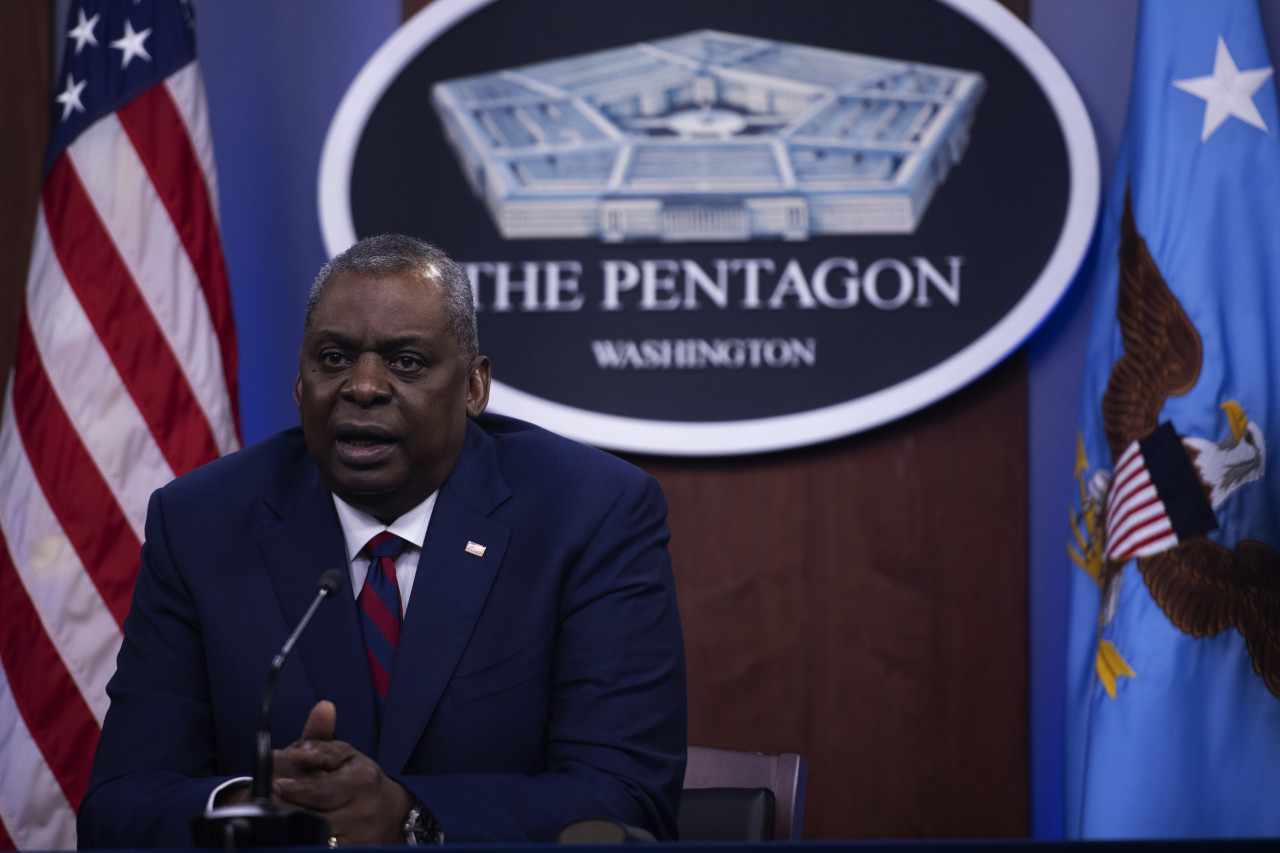Pentagon calls for enhancing alliance to deter China, NK in review
US permanently stations previously rotational units in S. Korea
By Ji Da-gyumPublished : Nov. 30, 2021 - 16:39

The US Defense Department on Monday called for enhanced cooperation with allies, including South Korea, to deter challenges posed by China and North Korea and to sustain stability in the Indo-Pacific region in its global posture review, or GPR.
After a nearly 10-month review, the Joe Biden administration released its first GPR since taking office, although most details remain classified.
The review shows the assessment of the US posture across major regions outside the US, such as overseas forces, and gives a glimpse of its near- and long-term defense strategy.
The Pentagon underscored the importance of strengthening the military alliance and defense partnership in the Indo-Pacific, which it described as the “priority region” for the review, mainly to counter the China challenge.
“In the Indo-Pacific, the review directs additional cooperation with allies and partners to advance initiatives that contribute to regional stability and deter potential Chinese military aggression and threats from North Korea,” the US Defense Department said in a statement.
The focus of the initiatives is to enhance military bases and infrastructure in Australia and Guam and seek “greater regional access for military partnership activities” against China.
North Korea, permanent stationing of previously rotational units
Countering China is key, the review showed. But Mara Karlin, performing the duties of deputy undersecretary of defense for policy, on Monday underscored that North Korea is the key consideration of its ongoing multifaceted defense strategies, including its missile defense review, nuclear posture review and national defense strategy.
Karlin emphasized Washington’s concerns about North Korea’s “problematic and irresponsible behavior” and reaffirmed the US commitment to provide extended nuclear deterrence and defend South Korea.
“I think we see that our posture in South Korea is robust, and it is effective. And so, I have no changes that we would want to announce at this time on that front,” Karlin said.
The Pentagon is also proceeding with its previously announced decision to permanently station a “previously rotational attack helicopter squadron and artillery division headquarters” in South Korea.
The decision appears to be in line with the Eighth Army’s announcement in September that the two units would be permanently restationed at Camp Humphreys.
The restationing of the 5-17th Heavy Armed Reconnaissance Squadron is expected to be complete in summer 2022.
The Eighth Army previously also said the Headquarters and Headquarters Battalion, 2nd Infantry Division Artillery, which includes around 100 soldiers and whose purpose is to assist with command and control forces, would be restationed from Joint Base Lewis-McChord outside of Tacoma, Washington.

US experts’ view of GPR
David Maxwell, a senior fellow at the Foundation for Defense of Democracies, said the permanent stationing “illustrates the understanding that certain (but not all) permanently stationed forces may be more effective for being ‘ready to fight tonight’ to support the defense of Korea than rotational forces.”
South Korea and Japan’s geographical proximity to the South and Southeast Asian region and their “optimal locations” are part of the advantages of permanently stationing US forces in the region.
“The existing infrastructure is likely considered more useful than temporary infrastructure supporting rotational forces and again the distance is less than from CONUS (continental US),” said Maxwell, who is a 30-year veteran of the US Army and retired colonel.
But other US experts pointed out that the permanent stationing will have minor implications for security dynamics on the peninsula, considering North Korea’s enhanced missile and nuclear capabilities.
“This is very minor stuff in the grand scheme of Korean Peninsula security,” Eric Gomez, director of defense policy studies at the Cato Institute, told The Korea Herald.
“The helicopter squadron and artillery HQ will marginally improve US-ROK capabilities to deter a North Korean attack, but such a capability was never in doubt given the alliance’s considerable conventional superiority over North Korea.” ROK refers to the formal name of South Korea.
Ankit Panda, senior fellow at the Carnegie Endowment for International Peace, said the capabilities enhanced from additional permanent stationing “won’t significantly upend the basic military balance on the Peninsula.” But the action will be a “welcome symbol of US reassurance in Seoul.”
Gomez and Panda also shared the view that the review generally lacks the large adjustments of the US military forces to reshift its military capabilities toward the Indo-Pacific, including the Korean Peninsula, and to balance China’s military power in the region.
“Instead of showing some sign of paring back capabilities, the GPR mostly calls for more of what’s already being done and for maintaining a forward presence in every theater,” Panda said. “The GPR also is limited in scope, considering that it doesn’t address cyber, space and nuclear capabilities in any particular detail.”
The US experts agreed that the Biden administration has failed to show its capability in making difficult choices and determining priority.
“I am disappointed that the United States is refusing to make any hard choices,” Gomez said.
But Maxwell said the two factors, including the necessity of “military presence in multiple theaters to support US national security objectives,” mainly influence the outcome of the review. Maxwell also explained that the US “cannot unilaterally re-station forces in theaters without host nation agreement and support.”











![[Today’s K-pop] BTS pop-up event to come to Seoul](http://res.heraldm.com/phpwas/restmb_idxmake.php?idx=644&simg=/content/image/2024/04/17/20240417050734_0.jpg&u=)





![[KH Explains] Hyundai's full hybrid edge to pay off amid slow transition to pure EVs](http://res.heraldm.com/phpwas/restmb_idxmake.php?idx=652&simg=/content/image/2024/04/18/20240418050645_0.jpg&u=20240418181020)

![[Today’s K-pop] Zico drops snippet of collaboration with Jennie](http://res.heraldm.com/phpwas/restmb_idxmake.php?idx=642&simg=/content/image/2024/04/18/20240418050702_0.jpg&u=)